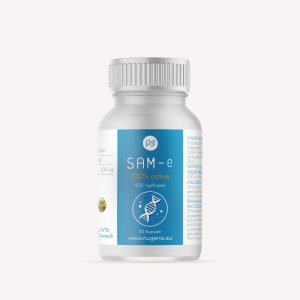
Open Placebo and the Epigenetics of Endorphins – How Expectation Rewrites the Biology of Pain
The placebo effect has long been treated as an illusion—something that “tricks” the mind into healing itself. Yet modern science reveals a deeper truth: the placebo is not deception; it is a conscious invitation to the body’s own intelligence. Even when patients are told that they are taking an open placebo—a capsule with no active ingredient—their pain can diminish. Awareness does not weaken the effect; it refines it.
In a Harvard study on chronic back pain, participants knowingly took inert pills labeled “Placebo.” Still, they reported significant relief and improved mood. Functional brain imaging showed activation of the prefrontal cortex, the anterior cingulate cortex, and the periaqueductal gray—the same neural pathways engaged by genuine opioid analgesics. Something profoundly biological was happening—without chemistry, without deception.[1]
Expectation is not just a psychological event; it is a biological one. When we anticipate relief, the brain mobilizes its own endogenous opioid system—releasing β-endorphin, enkephalins, and dynorphins. These molecules are not mere neurotransmitters; they are the body’s internal language of trust and safety.
But their expression is also epigenetically tuned. The POMC gene, which encodes β-endorphin, is sensitive to emotional context. Chronic stress and fear increase methylation at its promoter region, silencing its transcription. Hope and supportive expectation, by contrast, decrease methylation, allowing the gene to speak again. A placebo—especially an open one—does not pretend to heal; it permits the endorphin system to remember how.[2]
At the chromatin level, positive expectation leaves its own molecular fingerprint: histone acetylation in the prefrontal cortex and nucleus accumbens enhances the transcription of OPRM1, the gene coding for the μ-opioid receptor. Each act of belief slightly alters receptor sensitivity, embedding trust into the genome’s flexible architecture. Through repetition, this becomes a form of epigenetic learning—a memory not of words but of relief. The mind teaches the cell what safety feels like, and the cell remembers.[3]
Open placebos reveal that the boundary between psyche and soma is porous. They show that meaning is molecular—that consciousness can, through expectation and context, re-write patterns of gene expression governing pain, stress, and resilience. No deception is required. What matters is the relationship—between patient and physician, between inner narrative and outer experience. Each act of conscious participation activates top-down genetic regulation: cortical thought influencing hypothalamic hormones, which in turn modulate transcriptional control in peripheral cells. It is a dialogue between awareness and biology—a reciprocal conversation written in methyl groups and memories.[4]
When we understand the open placebo, we rediscover an ancient truth in modern terms: healing begins when meaning returns. To trust the possibility of relief is to reopen silenced genes. To participate in one’s own recovery is to become one’s own pharmacology.
The placebo is no longer a fake drug. It is the epigenetic awakening of belief—the molecular echo of self-trust.[5]
“Meaning itself is a biological signal.”
Eduard Rappold
Note: This information is provided for educational purposes only and does not replace professional medical advice. Always consult qualified healthcare professionals for medical concerns.
Copyright © Eduard Rappold 2025
http://nugenis.eu/shop
NUGENIS specializes in epigenetically active nutritional supplements.

